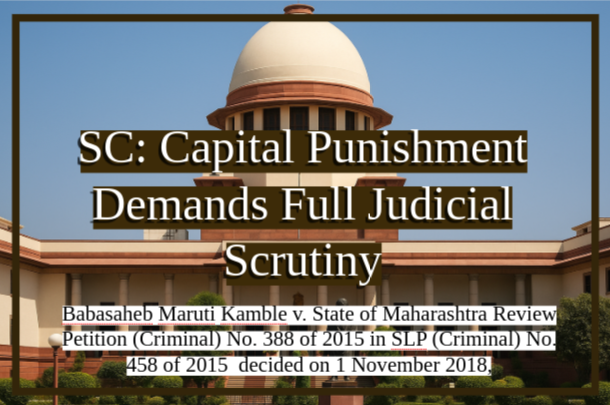Dowry & Cruelty: No More False Dowry Cases Against Distant Relatives
- M.R Mishra

- Apr 29, 2025
- 3 min read
Updated: Apr 29, 2025
In a significant reiteration of procedural caution in matrimonial disputes, the Supreme Court in a case has once again drawn a decisive line against the growing tendency to indiscriminately involve distant relatives of the husband in dowry-related criminal cases.
This judgment not only follows but reinforces a consistent judicial trend that seeks to curb the misuse of criminal law provisions, especially Sections 498A IPC and 4 of the Dowry Prohibition Act, 1961, against the extended family of the husband.
What's The Matter?
The factual canvas reveals a marriage solemnized in 2014 that rapidly disintegrated into a web of accusations, police complaints, and matrimonial litigation. The de-facto complainant, after oscillating between her matrimonial home and parental house, ultimately lodged multiple complaints culminating in the registration of a fresh FIR in 2016.
The appellants sister-in-law, her husband, and father-in-law’s relative challenged the proceedings, arguing that they had no real connection with the dispute, were living independently in Hyderabad, and yet were mechanically arrayed as accused merely because of their familial ties.
The allegations against the appellants were general and omnibus in nature: they were alleged to have occasionally visited Guntur and instigated the principal accused in demanding additional dowry.
There were no specific dates, no particularised instances, and no allegations of direct involvement or physical violence.
Indeed, the allegations consisted largely of taunts and vague references to political influence. Crucially, the appellants resided separately at Hyderabad while the de-facto complainant lived in Guntur, and subsequently moved to the USA.
What Court Said?
Faced with these facts, the Supreme Court invoked a robust body of jurisprudence that has steadily evolved against the blanket criminalisation of all family members. It referred to Geeta Mehrotra v. State of U.P. where the Court had deprecated the tendency of implicating every relative of the husband without specific allegations, and Dara Lakshmi Narayana v. State of Telangana, a recent 2024 ruling that reaffirmed the principle that mere presence in the husband’s extended family does not warrant prosecution absent specific, substantiated claims.
The Court rightly noted that such practices of dragging distant relatives into the criminal net result in abuse of the process of law. It observed that vague and sweeping accusations, bereft of concrete particulars, must be nipped in the bud to prevent misuse of criminal law as a tool for personal vendetta.
Matrimonial skirmishes, if permitted to escalate into full-blown criminal proceedings involving every branch of the family tree, would defeat the very spirit of judicial scrutiny envisaged under Section 482 of the CrPC.
The judgment also reflects a deep awareness of the delicate fabric of matrimonial relations.
The Court emphasized that marriage is intended as a sacred union, and the embroilment of elders and distant relatives in criminal proceedings not only poisons relations irreversibly but also derails any chance of reconciliation or amicable resolution.
By invoking G.V. Rao v. L.H.V. Prasad and Preeti Gupta v. State of Jharkhand, the Court reiterated its repeated warning against the mechanical use of penal statutes in family disputes, particularly when the allegations lack the particularity and immediacy required to sustain a criminal charge.
Ultimately, the Supreme Court quashed the criminal proceedings against the appellants, marking another vital reaffirmation of judicial discipline in matrimonial offences. It set a clear tone: accusations must be precise; criminal law must not be weaponised; and the burden remains on the complainant to show a prima facie case of personal involvement before prosecuting distant family members.
This judgment stands as yet another sentinel against the indiscriminate invocation of criminal law in matrimonial disputes. It reminds both litigants and lower courts alike that procedural fairness, specificity in pleading,
and protection against misuse are as important as safeguarding victims of genuine abuse.
In the evolving landscape of matrimonial litigation, the Supreme Court's message is unambiguous: the criminal process is a sword to be drawn with care, not a net cast indiscriminately.







Comments